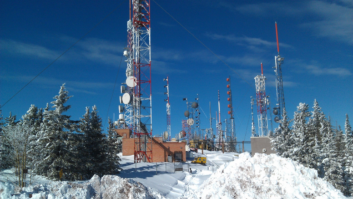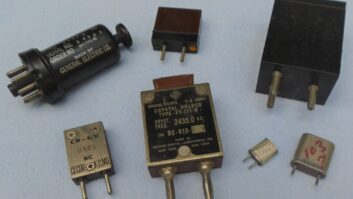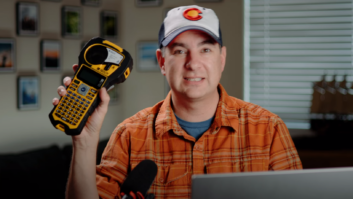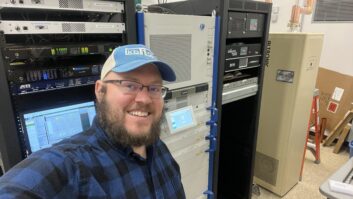In 1960, Pete Seeger sang the lyrics, “Where have all the flowers gone? Long time passing …” That song is running through my head now, but with a different question: “Where have all the engineers gone?”
I got into this business more than three decades ago. During my career, I witnessed the transition from full-time human engineers based at radio stations to the “plug and play” era of today.

Who will pick up the tools of the trade? iStockphoto/Dmitri Bruskov
Radio broadcast engineering can be a tough business. You’re generally expected to be on call 24 hours a day, 7 days a week, over the course of your entire career. Working day and night with my wife, Paula, often meant cancelling family gatherings in favor of getting a transmitter running again. But it’s also a satisfying and challenging occupation, which kept me on my toes for 33 years.
BEYOND SOLDER
I now work in the shop fixing equipment that stations send me, enjoying the lack of calls about repairs at 3 a.m. But now that I play a different role in the engineering world, I wonder what happened to all the new engineers out there, the ones who should take my place. Why are there so few?
Unfortunately, the industry (including myself) has not done a good job of attracting and training young blood in the radio engineering profession — though the Society of Broadcast Engineers is trying, commendably.
We are in an unusual business where equipment is manufactured in relatively small numbers, so the cost is high and gear usually doesn’t fall into the “throwaway” category. When a $70,000 transmitter goes down, there is not always factory tech support to point the way.
Any young engineer must possess electronics training so he or she can understand what a circuit is supposed to do and how to troubleshoot it down to the component level when it is not working right. More and more these days, I’ve observed a lack of such training from technical schools — perhaps because many college-educated engineers are focused on designing equipment now.
Recently I was at a cell site that is co-located with an FM broadcast transmitter. I was having trouble with my soldering iron and asked a cell repairman to loan me his iron, but he told me, “We don’t have soldering irons because none of our work requires soldering.”
Wow, was I surprised. I wear out soldering irons because they get so much use on the job.
It is true that radio studios are moving over to IP audio, which falls more into the domain of IT people, but transmitters and antennas still need broadcast engineers to install and maintain. Today’s engineers need to do both IT and maintenance, or the station must have two people to fill those roles.
I have been getting calls from IT people who are struggling with transmitters that are beyond their level of education or understanding. Those people often do not have the Ohm’s Law basic knowledge to help them think through component level troubleshooting problems. Any upcoming radio broadcast engineer needs to recognize this and train accordingly to be equipped mentally to deal with this when it occurs.
We older engineers need to help by mentoring the young ones to bring up their level of expertise in electronic problem solving. It is the right thing to do.
Comment on this or any article. Write to [email protected].
Mark Persons has 33 years’ experience as a professional broadcast engineer. His website is mwpersons.com.











